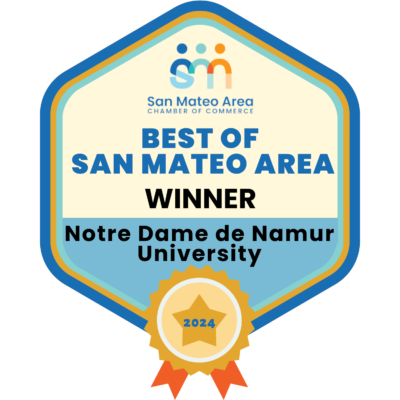
How Long Does It Take To Get an MBA?
How Long Does It Take to Get an MBA?
For individuals considering earning a master’s degree to increase their earning potential, an MBA could be a smart investment. In 2024, the median starting salary for MBA graduates was around $120,000, according to the Graduate Management Admission Council. And management occupations overall are projected to see strong job growth, with 1.2 million openings expected annually from 2023 to 2033, according to the U.S. Bureau of Labor Statistics.
Those who are interested in earning an advanced business degree may be wondering how long it takes to get an MBA. The exact timeline to receive an MBA degree depends on factors such as the type of MBA program a student enrolls in, the student’s work experience, and the program’s admissions requirements. The specialization and the delivery format chosen also can impact the total time it takes to graduate.
What Is an MBA?
A Master of Business Administration is a graduate-level degree that emphasizes business administration and management. MBA programs help students develop foundational business skills and gain a specialized understanding of various business sectors.
MBA programs are designed to prepare students for management-level careers in:
- Business management
- Finance
- Marketing
- Human resources
- Operations
MBA program requirements include a bachelor’s degree and, often, professional experience. Individuals can apply for an MBA program even if their undergraduate degree is not in a business-related field.
Types of MBAs and Program Lengths
The length of time it takes to earn an MBA degree ranges from as little as 12 months to five or more years. Why is there such a wide range? The exact MBA degree timeline depends on the type of program a student enrolls in.
The most common types of MBA programs are:
- Full-time MBA programs
- Part-time MBA programs
- Fast-track MBA programs
- Accelerated MBA programs
Many of these programs allow students to choose from in-person, online, or combination formats. Some programs allow students to work full- or part-time while earning their degree. Most programs require applicants to have at least some work experience.

How Long Do Full-Time MBAs Take?
Full-time MBA programs generally take two years to complete. During the first year, MBA students complete core business courses. They then gain hands-on experience with a summer internship, followed by a second year of specialized business courses.
Most students who enroll in full-time MBA programs do not have extensive work experience. Many students enter these programs directly after completing their undergraduate degree. Others work for up to three years before applying.
Full-time MBA programs are available in both in-person and online formats. These programs generally require at least 36 credits to receive a degree.
How Long Do Part-Time MBAs Take?
Part-time MBA programs can take three or more years to complete. MBA students earning their degree part time may take as few as one course per term. These degree programs often offer hybrid in-person and online formats for flexibility.
Professionals who wish to work while earning their degree often choose a part-time MBA program. These students can take one course per semester at night, on the weekends, or in online courses.
How Long Do Fast-Track MBAs Take?
Fast-track MBA programs grant a bachelor’s degree in business and an MBA in less time than it would take to earn both degrees separately. Fast-track MBA programs take five total years to complete. Also known as 4+1 programs, they combine a four-year undergraduate degree with a one-year MBA degree.
Enrolling in this type of program is one of the fastest ways to earn an MBA for those who do not yet have a bachelor’s degree. However, these programs require planning ahead. Most require undergraduate students to declare their intention to enroll during their junior or even sophomore year.
How Long Do Accelerated MBAs Take?
Accelerated MBA programs generally take 12 to 18 months to complete. These programs typically offer the same curriculum as a full-time MBA program but in an accelerated format, with students completing coursework on a tighter schedule.
For example, an accelerated MBA program may use eight-week sessions and offer courses year-round, giving students the ability to meet graduation requirements sooner. These accelerated programs typically require students to take classes full time.
Other Factors That Impact the Length of an MBA Program
The program type plays the largest role in how long it takes to get an MBA, but there are other factors that can impact an MBA student’s timeline.
- Specialization: MBA programs offer multiple specializations, with options like a STEM-focused MBA that can require additional coursework. Choosing a specialization with a higher credit requirement can add time to the program’s length.
- Delivery Format: Earning an MBA online can allow students to fit their coursework into their timeline. Some programs also offer self-paced options that give students more control over the program’s length.
- Preparation: Students who need to complete undergraduate prerequisite courses, study for the GMAT, or gain work experience before applying to an MBA program will need to add the time it takes for those tasks to the length of completing their degree program.
How to Speed Up the MBA Timeline
The following tips and strategies can help students speed up the timeline to complete their MBA program.
Apply for a Program With a GMAT/GRE Waiver
Many accredited business schools no longer consider the GMAT or GRE when making admissions decisions. Others offer GMAT waivers for eligible applicants. Eliminating the need to take a standardized test can greatly decrease the amount of time needed to get an MBA degree. Students should look for schools that do not require standardized testing scores to apply.
When applying to programs that require test scores, students should inquire about the requirements for a waiver. Some programs allow students with high undergraduate GPAs or considerable work experience to apply without GMAT or GRE scores.
Consider a Fast-Track MBA Program
For undergraduate or high school students, enrolling in a fast-track program is a great way to speed up the timeline for getting an MBA. However, applicants should keep in mind that not all undergraduate schools offer 4+1 degree paths.
Enroll in a Program That Does Not Require Work Experience
Many MBA programs require applicants to accumulate work experience before applying. This is especially true of applicants who do not have a degree in business or a related field.
However, some programs do not have these requirements and accept applicants who have just completed their undergraduate degree. Career changers can apply after only a few years of working.
Choose a Full-Time MBA Program
Full-time MBA programs take much less time to complete than part-time programs. At the most, students can expect to spend two years earning an MBA in a full-time program.
Choosing online classes or taking on an accelerated course load can speed up the time it takes to complete a full-time program even further. Students may be able to earn their master’s degree in as little as 12 to 18 months.
MBA Program Application Requirements
Individuals gearing up to apply to an MBA program need to make sure to include the following in their admissions timeline.
- GPA Requirements: The average GPA of students entering an accredited MBA program is between 3.5 and 3.7. Most schools will not consider students with a GPA lower than 2.0.
- Transcripts: Master’s programs require applicants to submit transcripts of their undergraduate work. These must be official transcripts. Sending in an unofficial transcript could delay the admissions process.
- GMAT or GRE Scores: Not all schools require GMAT or GRE scores to apply to a master’s program. However, some do, which can slow down the timeline for earning a degree.
- Admissions Interview: Most MBA programs require students to attend an admissions interview. Often, schools only schedule interviews with top candidates. The more candidates the program interviews, the longer it takes to receive an acceptance letter.
- Professional Work Experience: While not all MBA programs require professional work experience, meeting this requirement can take years. Full-time programs may waive this requirement for recent graduates who majored in business, finance, or a related field.
- Recommendation Letters: Programs may require one to three letters of recommendation from academic or professional sources. These letters should speak to a candidate’s work ethic, management potential, and strengths. Applicants should plan ahead and give these individuals enough time to write and submit quality recommendations.
MBA Career Opportunities
MBA graduates have a unique opportunity to shape themselves into successful and confident leaders. Directors, executives, and other business leaders often hold a master’s degree, which helps them advance in the sector of their choosing.
With an MBA, graduates can pursue opportunities in any of a number of industries and fields, including the following.
Finance
One of the most sought-after fields for MBA graduates is finance. An MBA program prepares individuals for a career as a financial analyst, investment banker, or financial adviser. These jobs typically involve studying financial information, developing investment plans, and providing clients with financial guidance.
Business Management
Management careers are another popular choice for MBA graduates. An MBA can lead to management opportunities across a variety of industries, including consulting, technology, and healthcare. Management positions typically involve overseeing operations, managing teams, managing projects, and making strategic decisions.
Entrepreneurship
Earning an MBA can help professionals prepare to launch a new business. In an MBA program, future entrepreneurs gain and fine-tune the skills needed to start and run a business. This includes learning how to write business plans, manage money, and self-promote their products or services through marketing.
Marketing
Having an MBA can open doors to opportunities in the field of marketing. A marketing career lets graduates show off their creativity and strategic thinking by performing tasks such as analyzing competitors and identifying target markets. MBA programs help students develop the skills needed to create good marketing plans, conduct market research, and understand how consumers behave.
Human Resources
MBA graduates can effectively manage and develop a company’s employees, focusing on organizational behavior and leadership. Human resources professionals help shape a company’s culture and keep employees motivated and engaged. They handle recruitment, talent acquisition, employee onboarding and training, and performance reviews.
Operations
Operations managers play an important role in ensuring the smooth functioning of a company. They can contribute to the company’s success by managing the supply chain, ensuring quality control, and overseeing production.
International Business
MBA graduates are trained to understand different cultures and global markets, which can help them expand businesses internationally using data-driven strategies. From identifying potential markets to managing international partnerships, individuals with an MBA can thrive in the dynamic world of international business.
Earn Your MBA at NDNU
You can earn an MBA in as little as 18 months at Notre Dame de Namur University.
NDNU offers two MBA programs with different timelines. The Master of Business Administration requires 36 credits and can take as little as 18 months to complete. We also offer an MBA degree for students wishing to gain expertise in science, technology, engineering, and math (STEM) fields. This program requires students to take core business management courses plus 12 STEM credits.
To speed up students’ MBA timelines even further, we waive testing requirements for admission. You do not have to submit GRE or GMAT scores, regardless of your undergraduate degree or GPA.
Are you ready to apply to an MBA program at NDNU? Visit our admissions page to learn more about applying. Or fill out an application to start your journey toward an MBA today!
More From NDNU

Master of Arts vs. Master of Science: What’s the Difference?
November 22nd, 2024 Master of Arts vs. Master of Science: What’s the Difference? There are many benefits to earning a graduate degree. Through a master’s

Is an MBA Worth It?
January 7th, 2025 Is an MBA Worth It? Earning a Master of Business Administration (MBA) can be a gateway to success in the corporate world.

Is a Bachelor’s Degree Worth It?
November 27th, 2024 Is a Bachelor’s Degree Worth It? In today’s fast-paced world, you might wonder if a bachelor’s degree is worth it. Does the

